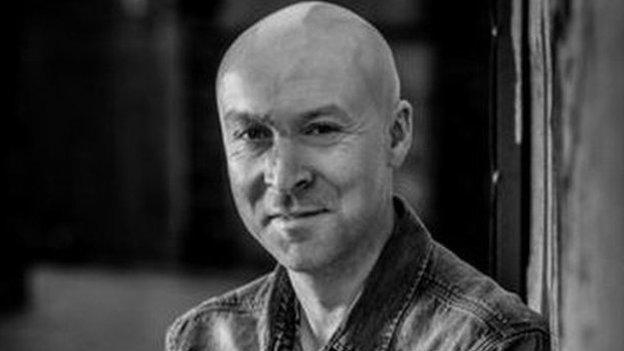Tartan Noir: What makes Aberdeen a criminally good inspiration for writers?
- Published
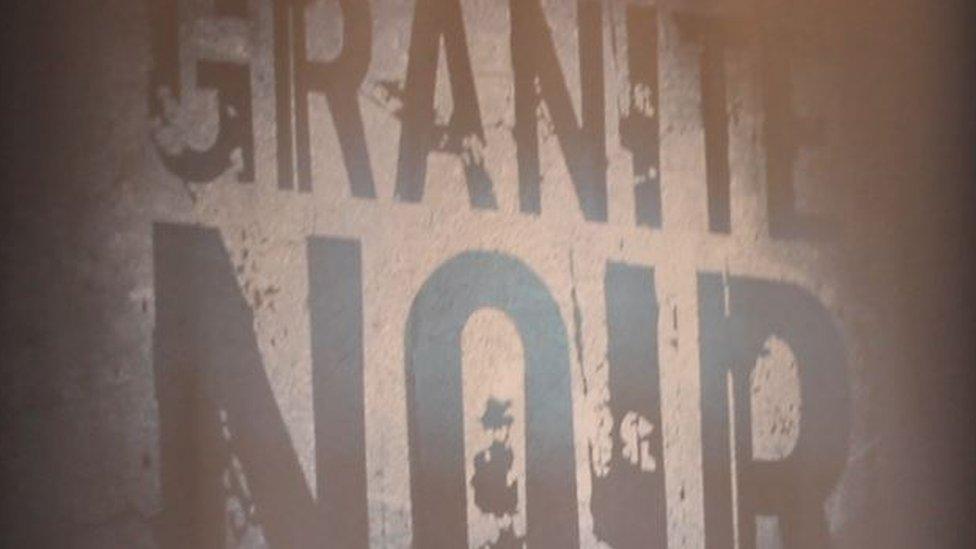
From Stuart MacBride to Iain Banks, Aberdeen and the surrounding area has long featured as a setting and source of inspiration for writers.
Its literary scene is thriving. Last weekend hundreds of book-lovers and writers descended on the city to talk all things crime.
Granite Noir is the name of Aberdeen's crime writing festival. Now in its third year, it is proving increasingly popular, with organisers reporting a 50% rise in ticket sales compared to last year's event.
Scotland has birthed a generation of crime writers, who are often described as producing 'Tartan Noir'.
"There's a dark sensibility in Scotland," says Graeme Macrae Burnet, whose crime novel His Bloody Project was shortlisted for the Man Booker Prize in 2016.
"The dark, long winter nights, the inclement weather - everyone likes to hear about a nasty murder. There is something in the northern sensibility that draws people to crime fiction."
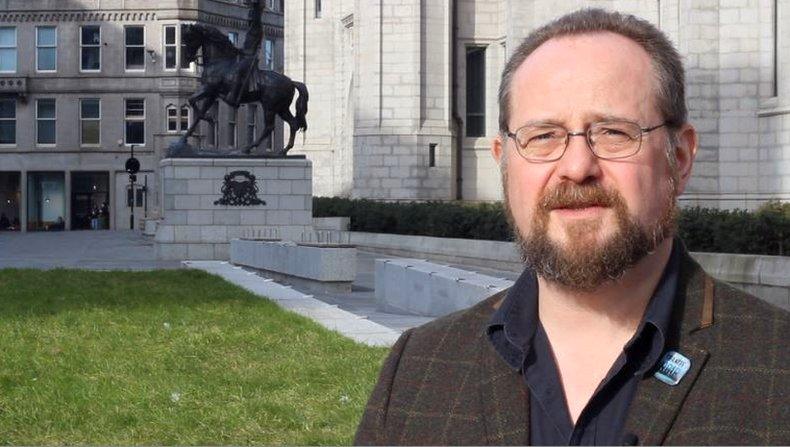
Crime writer Stuart MacBride was the ambassador for this year's Granite Noir festival.
"When I started writing you could only really do it about Edinburgh or Glasgow," said Stuart MacBride, who writes the popular Logan McRae series.
His first book, Cold Granite, was published in 2005.
"Everything was [set in] the central belt. It was nice to actually break out of that.
"It's now 14 years since I first came out and there's crime fiction set in Dundee and Inverness. All of Scotland is now available for crime fiction. That wouldn't have seemed possible 20 years ago."
'Well-milked'
Claire MacLeary, author of the Harcus and Laird series which features two female private detectives, also wanted to make the most of Aberdeen.
"I felt that the central belt was well-milked, and that Aberdeen was underrepresented, apart from Stuart MacBride," she said.
"I think Aberdeen has absolutely everything. There's a lot of contrast - you've got the ancient university, the harbour and oil development. There's the North Sea, wild and terrifying, right next to soft, lush country."
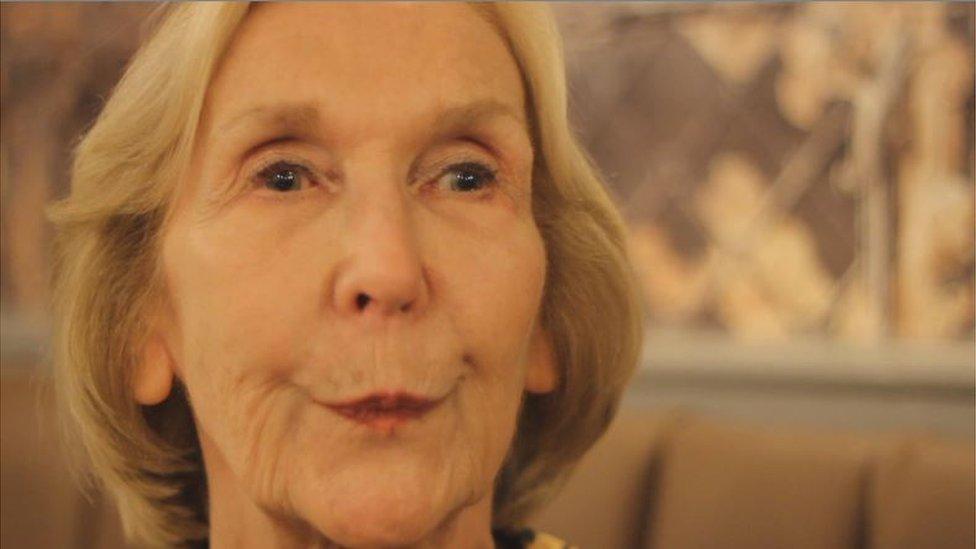
Although she is now based in Glasgow, Claire MacLeary uses her old home of Aberdeen as the setting for her crime novels.
The geography of Aberdeen also appeals to Stuart MacBride. "It's a very neutral palette. The entire city changes, the mood changes, depending on the weather.
"When it's sunny everybody is smiling and standing upright, but in 15 minutes it can be overcast and drizzling. It's very mercurial in its moods, which works very well with crime fiction. The entire landscape can reflect what happens in the plot."
"Aberdeen is a huge city, but it gets treated by a lot of the media as though it's some parochial backwater. It's a big place, it has big problems. I've lived here since I was two, this is my hometown. Why wouldn't I set books here?"
Local writers
It is not just well-established and award winning writers who played a part in Granite Noir's programming. Ahead of a range of events, a group of local writers were invited to read from their own work.
One of these was Eric Davidson, a former Grampian Police worker.
He is now a self-published crime author, with his crime series set in Edwardian Aberdeen available through Amazon.
"It made sense to me to write my stories in an environment that I not only recognised myself, but could find a lot more about very quickly," he said.
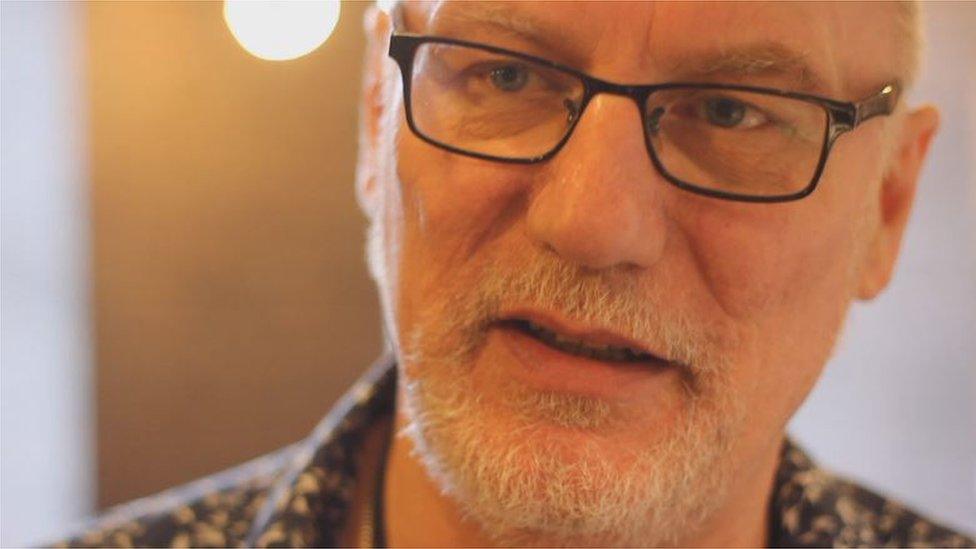
Former Grampian Police worker Eric Davidson has self-published his crime series, set in historical Aberdeen.
"Aberdeen has this reputation for being a grey city. But I don't know if Aberdeen's actually got much different to other cities, maybe it's not so much that Aberdeen lends itself to crime fiction, but that the more people write about it, the more people associate the two things."
Ms MacLeary sees her Aberdonian detectives as a way to appeal to this grisly love, as well as draw new readers to the genre. "I didn't want to go down the route of tortured male detective. Women in crime fiction are either very qualified forensic scientists or very strong, tough detectives with high heels and no handbags.
"I just went for women who aren't qualified for anything really, just two very ordinary women. My books are dark, but I tackle a lot of social issues like poverty and domestic abuse."
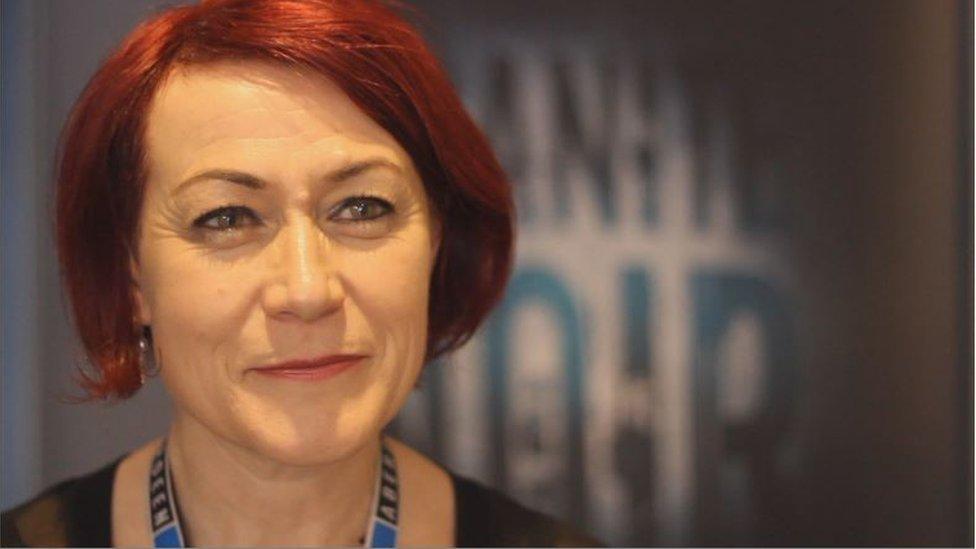
Head of artistic development at Aberdeen Performing Arts, Lesley Anne Rose, said ticket sales for this year's festival were up 50%
"Crime fiction has been at the core of mankind since we could talk," said Mr MacBride. "The tales we would tell each other around the campfire were about the things that scared us. That's what crime fiction still does.
"You get security and resolution to things you wouldn't normally get in real life, but crime fiction gives us an opportunity to look inside what's going wrong with society and maybe how that can be fixed."
Mr MacBride's next instalment in the Logan McRae series is due out later this year, but he hopes he will not be confined to crime forever.
"I love a good rom-com and I'm getting back into fantasy. I want to embark on a passion project." he said.
It is a year until crime fiction fans once again flock to Aberdeen, but until then they need just pick up a novel to explore Scotland's Granite City.
- Published26 February 2018
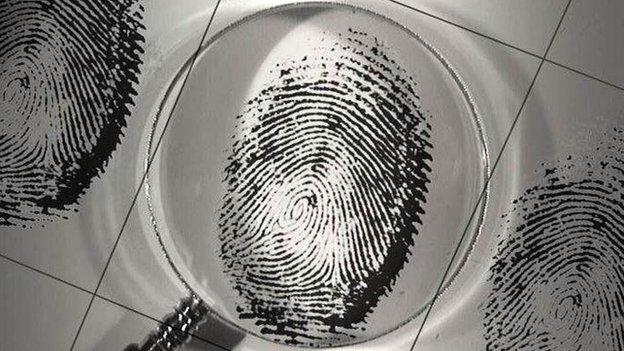
- Published24 February 2017
